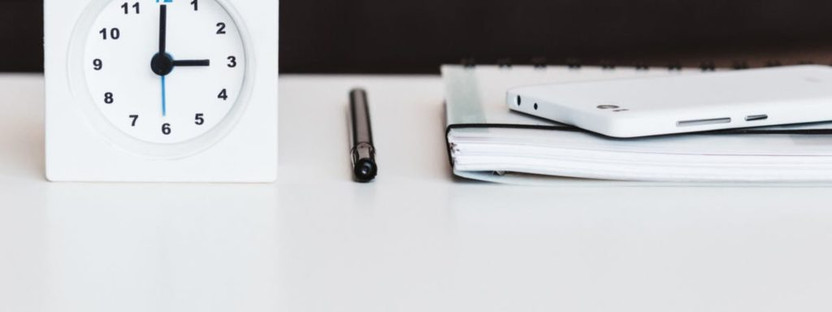Tips for Timekeeping
Posted by Jennifer Gumbel on Apr 24th 2019
In her Motion to Organize weekly column, lawyer Jennifer Gumbel talks organization, productivity, and more.
Lawyers traditionally bill according to the amount of time they spend on a file.
Our trade is our knowledge and advice. And the measure of that knowledge has traditionally been in hours and fractions of hours.
But our industry is changing, with more and more ways of billing coming into play, usually in ways that allow us to tell our clients what they’re in for from the get-go. Unfortunately, not every type of law and not every problem is straight forward enough to give us the luxury of doing that.
And yet most lawyers still need to track time.
Even if your clients know exactly what their bill will be from the first time you work with them, keeping track or your time remains beneficial. Think about how anyone else figures out a fair rate to charge a customer. They figure out their “inputs.” Whatever the widget, like flour or lumber, those widgets have to be tracked. The number of widgets it takes to serve the customer sets the rate. Our widgets just happen to be knowledge and time.
Tracking time is either the central part of your billing or it’s the central part of figuring out what to set the rate to tell your client what their final bill will be. So wherever you (or your practice) falls on the hourly billing debate, track your time.
There are multiple methods to track, but they all fall under two categories:
- tracking as you go (or as nearly as you go) or
- trying to piece it together later.
Without a doubt, piecing together later means you will miss time.
It’s easy to forget every moment you spend on a project when you’re not tracking as you go. And thus if you’re still billing by time, that means you’re missing revenue. Either in actual time spent or in calculating what your rate should be.
That’s why I recommend using some form of tracking system and doing it while you work.
The only way I’ve found to track as you go effectively is using ca paper on my desk.
So…don’t just track your time. Have a dedicated pad of paper in front of you, whether a journal, notebook or a writing pad, and use that to keep track of what you’re doing, and for how long. Personally, I love my clipboard to keep me organized. It lets me add and remove sheets without a mess. Importantly, it keeps the paper easily accessible even if my desk has more files on it than I’d ever like to admit.
Written by Jennifer Gumbel
Jennifer Gumbel is an estate planning and probate lawyer in Austin, Minnesota. She takes her morbid nerd-dom to another level by talking about how to organize your after life, with the website An Organized (after)Life and the podcast, An Organized (after)Life, which you can find on the website, Spreaker and ITunes. You can also find her on Instagram with pics on death organizing and small town Minnesota life at the handle @jengumbel.

